Wine is not the only present the vine has to give us
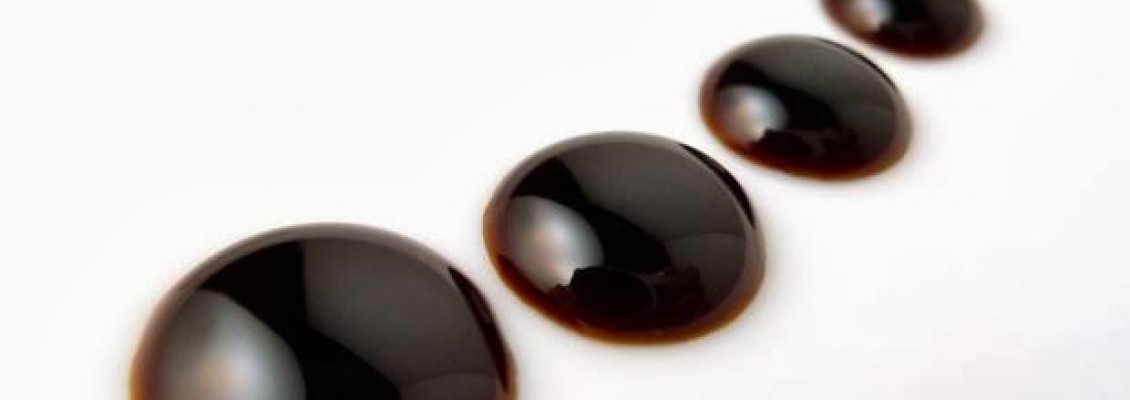
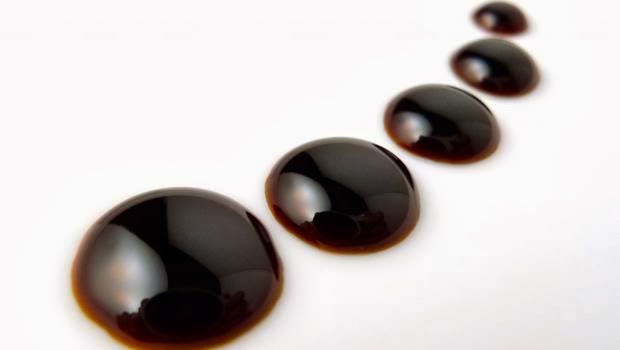
In the old days, when sugar used to be a luxury item, grape products used to sweeten the people.
By Aglaia Kremezi
The very hot days and the drought of this year's summer made the vines less fertile, bu it is very possible that the grapes the wine growers harvested to be of excellent quality and give superb wines.
However, the juices from the bunches we call 'wine-grapes' which we don't enjoy as fruits on the table, can in addition to wine, give us some other helpful materials as well. In recent years, as there is an oversupply of wines in the European Union, many Greek producers have turned to pore unusual and prized grape products, such as ine vinegars, from separate local varieties and the grape juices in their natural form but also more or less concentrated, until they become a thick and and dark sirup called petimezi or molasses.
Fine Vinegars
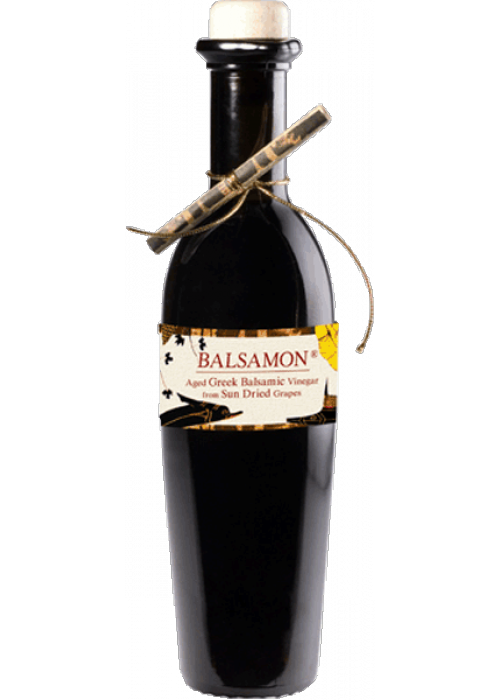 From the ancient times, vinegar has been one of the basic ingredients in cooking and with its flavour it complements many and various foods and of course all kinds of salads. Until recently, if wee wanted good and tasty vinegar, we had to resort to the imported ones from France, Spain and of course Italy where the authentic Balsamico di Modena is patiently produced. Large multinational companies rushed to create artificial vinegars 'balsamic' type, as global demand for the limited-quantity and costly product increased significantly.
From the ancient times, vinegar has been one of the basic ingredients in cooking and with its flavour it complements many and various foods and of course all kinds of salads. Until recently, if wee wanted good and tasty vinegar, we had to resort to the imported ones from France, Spain and of course Italy where the authentic Balsamico di Modena is patiently produced. Large multinational companies rushed to create artificial vinegars 'balsamic' type, as global demand for the limited-quantity and costly product increased significantly.
Following the Italians production, Kostas Papadimitriou from Kalamata, created “Balsamon”, a very different greek product that was quickly recognised and loved in Greece but abroad as well, where it is exported in large quantities. Simple and aged, Balsamon with the deep and complex taste, opened the road for many more, different but equally important greek vinegars:
I distinguish the unique and exceptionally packed vinegar by Gaia Oinopoiitiki, where it stays in barrels to age for 5 years as well as the vinegar by Vaimaki Family from Zitsa in Ioannina, which is closer to the traditional greek homemade vinegars that our grandparents used to make.
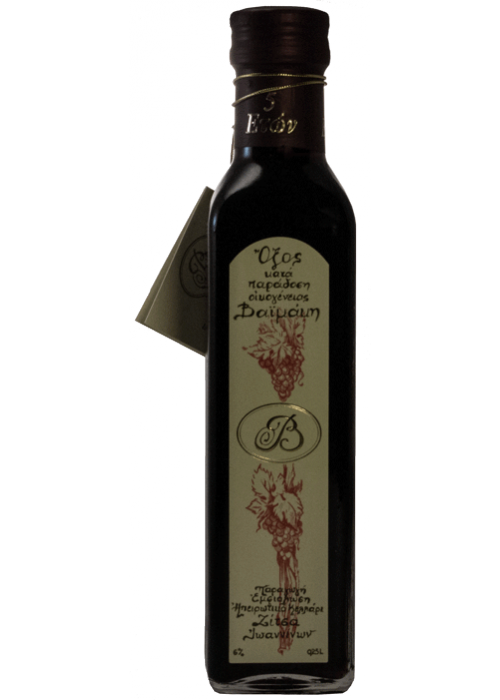
Grape and Molasses
Before we get to the wine or the vinegars however, grape juice is yet another product that has recently been of great demand. In France, but in California as well, known and famous wine producers bottle the juice from white or black grapes, and the sommeliers in big restaurants suggest them as a trimming to their dishes for anyone who avoids alcohol but for children who dine with their gourmet parents as well.
Concentrated rape juice is made into an excellent sorbet, or can be mixed with other fruits and fill pastries, cakes and jams. I the must boils even more, we take the molasses, the basic sweetener of our ancestors.
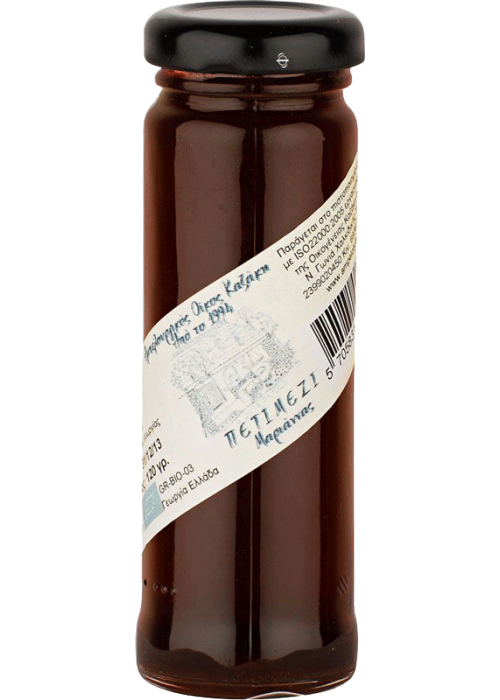 Molasses is produced when fresh must is boiled before the fermentation begins for and it becomes wine so that part of the water it containers, evaporates. Romans had special names for the lighter and the denser molasses. Defructum was what the boiling must until it was left half was called, carenum was the must that boiled until one third was left, and sapa was the very concentrated molasses which was the one fourth of the must' s initial quantity. Greek molasses comes very close to the last dense syrup, which is also used by th Italians sometimes with the name saba and sometimes with the name vino cotto.
Molasses is produced when fresh must is boiled before the fermentation begins for and it becomes wine so that part of the water it containers, evaporates. Romans had special names for the lighter and the denser molasses. Defructum was what the boiling must until it was left half was called, carenum was the must that boiled until one third was left, and sapa was the very concentrated molasses which was the one fourth of the must' s initial quantity. Greek molasses comes very close to the last dense syrup, which is also used by th Italians sometimes with the name saba and sometimes with the name vino cotto.
Nowadays, the basic importance of a grape syrup is lost, since sygar is an easier and cheaper sweetener. Molasses though with its complex and deep taste, is not just sweet, and that's why its has started to recover a part of its old glory. The concentrated grape syrup which we call “petimezi” by corrupting the turkish word 'pekmez' is an ancient sweetener like honey. The people of the Mediterranean used it in the way we nowadays use sugar. To add it into bread, drinks and sauces for any kind of food where they loved to mix, sweet, sour and spicy flavours.
Petimezi in cooking and pastry making
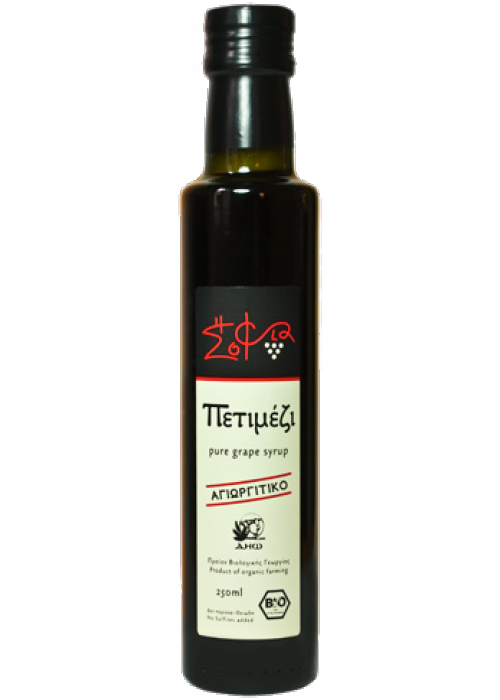 Apart from moustalevria, which is the basic Greek sweet, which is based on petimezi, and the 'soutzoukia' which are nuts plunged into dense and dehydrated moustalevria, in Volos you will also find the unusual dark moustokoulouma, which are made by the local crafts. In gourmet places, old fashioned jams ans desserts are lately making their appearance, where fruits are boiled in grape syrup and not sugar, thus gaining an extra tasting dimension.
Apart from moustalevria, which is the basic Greek sweet, which is based on petimezi, and the 'soutzoukia' which are nuts plunged into dense and dehydrated moustalevria, in Volos you will also find the unusual dark moustokoulouma, which are made by the local crafts. In gourmet places, old fashioned jams ans desserts are lately making their appearance, where fruits are boiled in grape syrup and not sugar, thus gaining an extra tasting dimension.
Don't worry about the old complex techniques with the addition of ash, or crushed clay that was sprinkled in the molasses for cleansing,i.e to help the fibers calm down. Boil the juice that you will get after squashing or melting the grapes in a mixer, after you strain the pulp. Estimate that in order to get 2 ½ cups of molasses you will have to boil the juice from 2 ½ grapes for an hour. Molasses can be added in sweet or salty sauces, you can put on top of yoghurt or ise cream and by diluting it with water, you can use it to make moustalevria or moustokouloura. Finally, you can boil apples, figs, pears, quince, red pumpkin and other fruits in molasses and create unusual desserts and jams. These molasses – sweets can be an excellent filling for tarts, cookies or kaltsounia, and will ideally accompany poultry and meat for the wintery meals.
Source: http://www.gourmed.gr